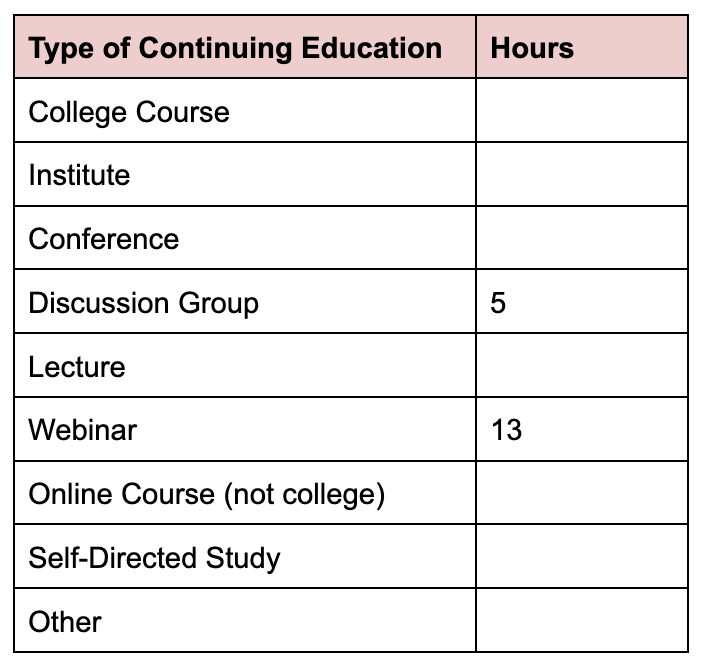One of the most important elements of genealogy is the continuous need (and want) to learn. This is because constantly there are new resources, new repositories, new websites, new genealogical research methods, and of course, a plethora of new DNA tools. Therefore, in the genealogical world we find ourselves having to constantly and continuously learn – if not, we fall behind on the times! This is mainly why I love genealogy because it has many elements present from Academia – aside from publishing, speaking, and teaching opportunities to boot! So today I want to talk about how I go about continuing my education with the help of APG’s Continuing Education requirement which is necessary to complete every year you are an active member. Likely in the future, I will combine this post with my end-of-year genealogical resolutions review, but since I had this post scheduled for end of January and I missed posting it, I figured I would post to catch up!
Continuing Education
As I mentioned, as a member of the APG (Association of Professional Genealogy), one must complete a certain number of educational hours – currently that number is 12 for the year. They can be done through webinars, online courses, self-direct study, discussion groups, lectures, and other methods as well. At the beginning of the new year, you reflect on the past year’s educational opportunities you participated in by tallying up the hours spent in each category and answering some questions about some of the things you had done. Below you can see that I spent the bulk of my time doing webinars and then some time in my discussion groups as well – in total I completed 18 hours.

In the future, I might want to diversify how I spend my time learning, for example, in 2023 I spent a good amount of time learning Catalan and clocked those hours in with “self-study” since I do a lot of work with Mallorcan research in my own family. This year I hope to add some hours to the conference section of my learning!
Where can I learn more?
The answer to this question will depend on what you are trying to learn and in general how you learn. There are people who are perfectly happy with looking at a webinar and taking in all the information on their own versus people who might want to do an online (or even in-person) course and workshops to learn everything in real time and have a person to ask and answer questions. I personally have not tried all of these methods below, but here are some places that can be super helpful to start and are well known in the genealogy world.
- Genealogical Institute on Federal Records
- GRIP Genealogy Institute
- Legacy Family Tree Webinars
- NGS Conference
- RootsTech
- SLIG Courses
There are definitely more places to check out but this is a good place to take a look at what is out there. A lot of them may require payments or being a member, but it is worth it if you are serious about finding places to learn more about genealogy. A simply YouTube and Google search is a good place to start as well!
If you have a niche area of genealogy, sometimes it can be difficult to find webinars that are catered to your community or area of research. For this, I recommend studying more general skills you can apply to your genealogy, such as the GPS (Genealogical Proof Standard). In general, diversifying your learning can help to pick up new tricks and tidbits of information you might not know about if you only stayed in your area of interest.
Another way is to start creating your own content for your area of interest! Of course, this will depend on whether or not you like to speak in public or online and how well versed you are in that area, but if you are someone like me who has spent many years learning and researching in your area and you are fairly comfortable about what you can do in that area – then definitely go for it!
Future EducationAL Opportunities
This year I plan to attend my first in-person genealogical conference which I am excited about and I hope to continue watching webinars on different topics ranging from DNA, slavery, indirect/direct evidence, endogamy, etc. I really like the webinars that focus on a skill and the presenter demonstrates how they used it in their own family research to break a brick wall or solve a mystery, for example. For me, these are the easiest webinars to understand because you see how it was used and attempt to replicate it in your own research.
And who knows, maybe in the future you’ll start seeing some of my own webinars and workshops on Puerto Rican genealogy!

